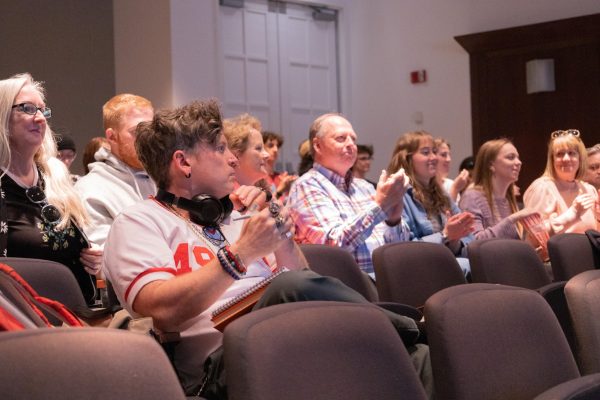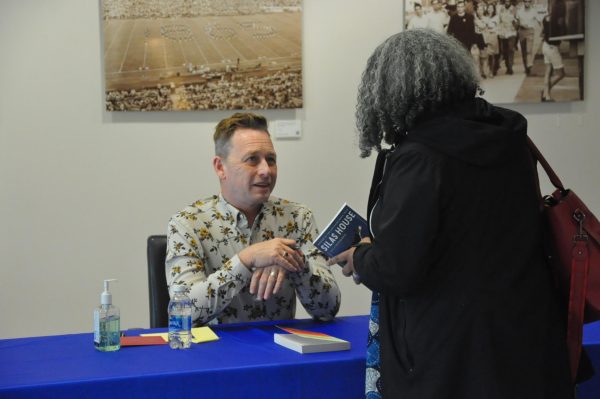Kentucky Kernel appeals UK’s decision to deny open records request
April 21, 2016
The Kentucky Kernel has filed an appeal with Kentucky Attorney General Andy Beshear for the release of documents from the UK Open Records Office, in relation to the sexual harassment case involving associate professor of entomology James Harwood.
Harwood recently signed a resignation agreement and will continue to receive pay and benefits until Aug. 31.
Harwood denied any wrongdoing in the case, which was investigated by the Office of Institutional Equity and Equal Opportunity.
The Kernel requested “copies of all records detailing the investigation by the University of Kentucky or the Office of Institutional Equity and Equal Opportunity of James Harwood and any allegations of sexual harassment, sexual assault, or any other misconduct by James Harwood.”
The university denied the request for these records, citing the documents as “preliminary,” and containing information “of a personal nature where the public disclosure would constitute an unwarranted invasion of personal privacy.”
Harwood signed the agreement on Feb. 26, wherein he agreed to continue receiving pay and not have direct contact with university faculty, staff or students, except for work-related electronic communication.
UK also said some of the documents are protected by attorney-client privilege, and therefore are exempt from disclosure.
Under the Kentucky Open Records Act, “public agency” includes, among other things, “every state or local government agency, including the policy-making board of an institution of education.”
While the law also allows public agencies to withhold the records of ongoing investigations, it also states that once a final decision is reached, public records are to be open. As stated in KRS 61.878 (1)(h), “Unless exempted by other provisions of KRS 61.870 to 61.884, public records exempted under this provision shall be open after enforcement action is completed or a decision is made to take no action.”
David Thompson, the executive director of the Kentucky Press Association, said the law is clear on this matter and does not give viability to UK using “preliminary” as a way to avoid complying with the open records request.
“That a settlement has been reached and appropriate action taken, ‘preliminary’ is only an excuse and has no merit for denying the records whatsoever,” Thompson said. “Obviously, a decision was made in this case because of the settlement agreement and action against the professor in question. There is no other way to interpret the intent of that statute and nothing remains preliminary once it reaches that point.”
Terry Sebastian, communications director for Beshear, said the appeal is still pending, and they will “review and respond accordingly.”

























































































































































